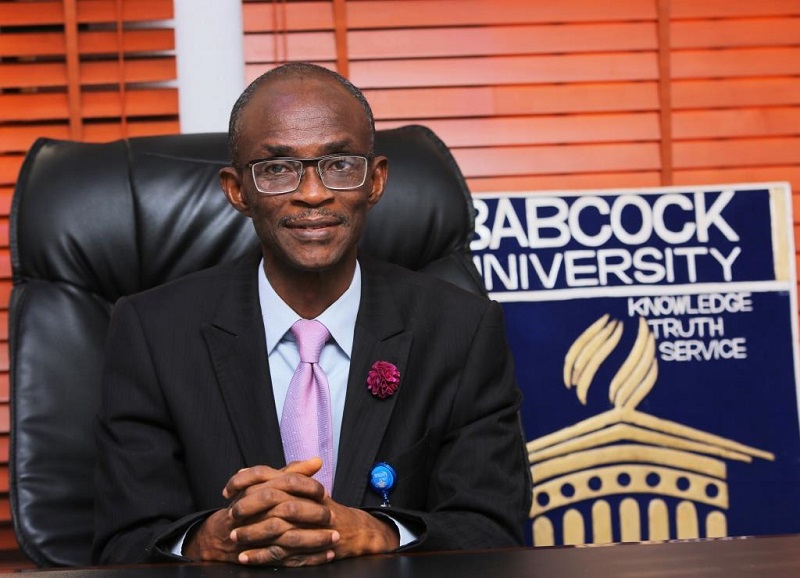Professor Ademola Tayo, Vice Chancellor of Babcock University, has expressed concern about the sluggish growth of the digital economy in Africa, which currently contributes only 16-20% to the continent’s Gross Domestic Product (GDP). He highlighted Nigeria’s position as a consumer rather than a producer of technology, a situation that deprives the nation of significant revenue and hinders its overall prosperity. This lament came during the inauguration of several infrastructural projects at Babcock University, coinciding with the institution’s 2025 convocation ceremonies. These projects signal the university’s commitment to advancing technological innovation and preparing students for the demands of the digital age.
The newly inaugurated projects include a Senate Building dedicated to the university’s pioneer Vice Chancellor, Professor Adekunle Alalade; the New Horizon Tech Hub, a central facility designed to foster technological innovation; various road improvements and staff accommodations; a staff crèche; a N70 million solar-powered energy system for the Laz Otti Memorial Library; a sports arcade; and a swimming pool donated by graduating students. These investments underscore Babcock University’s commitment to providing a comprehensive and enriching educational environment, fostering both academic and extracurricular development. The diverse range of projects demonstrates a holistic approach to enhancing the university experience for students, faculty, and staff alike.
The centerpiece of these developments is the New Horizon Tech Hub, a testament to Babcock University’s ambition to be at the forefront of technological advancement. This hub is equipped with state-of-the-art facilities for Artificial Intelligence research, an incubation center to support startups, and various cutting-edge technologies aimed at preparing students and staff for the challenges and opportunities of the digital world. Professor Tayo emphasized the importance of this initiative in addressing Nigeria’s current status as a technology consumer rather than a producer. He stressed the need for Nigerian universities to become breeding grounds for technological innovation, enabling the country to develop and export its own software, hardware, and other technological solutions.
Professor Tayo’s critique of Africa’s digital economy underscores a broader continental challenge. While telecommunications and financial technology (fintech) have made significant contributions to the digital economy, the underlying core infrastructure remains underdeveloped. This infrastructure gap hinders the growth of other technology sectors and limits the continent’s ability to fully leverage the potential of the digital revolution. Babcock University, through initiatives like the New Horizon Tech Hub, is striving to address this challenge by fostering a culture of innovation and providing students with the skills and resources needed to develop cutting-edge technologies. The university aims to be a driving force in transforming Nigeria from a technology consumer to a technology innovator.
The inauguration of these projects marks a significant step forward in Babcock University’s pursuit of excellence in education and its commitment to preparing students for the future. By investing in state-of-the-art infrastructure, particularly in the area of technology, the university is positioning itself as a leader in the drive to enhance Nigeria’s digital economy. The emphasis on innovation and technology reflects a broader understanding of the critical role these factors play in national development and global competitiveness. The university’s investment in renewable energy through the solar-powered library also demonstrates a commitment to sustainable development and environmental responsibility.
In conclusion, Babcock University’s recent infrastructural developments, especially the New Horizon Tech Hub, are not merely symbolic gestures but represent a strategic response to the pressing need for greater technological innovation in Nigeria and Africa as a whole. The university’s efforts to empower students with the skills and resources needed to thrive in the digital economy are crucial for driving economic growth and national prosperity. By fostering a culture of innovation and entrepreneurship, Babcock University aims to contribute significantly to bridging the technology gap and transforming Nigeria into a key player in the global digital landscape. The university’s commitment to both academic excellence and practical application of technology sets a strong example for other institutions across the continent.


